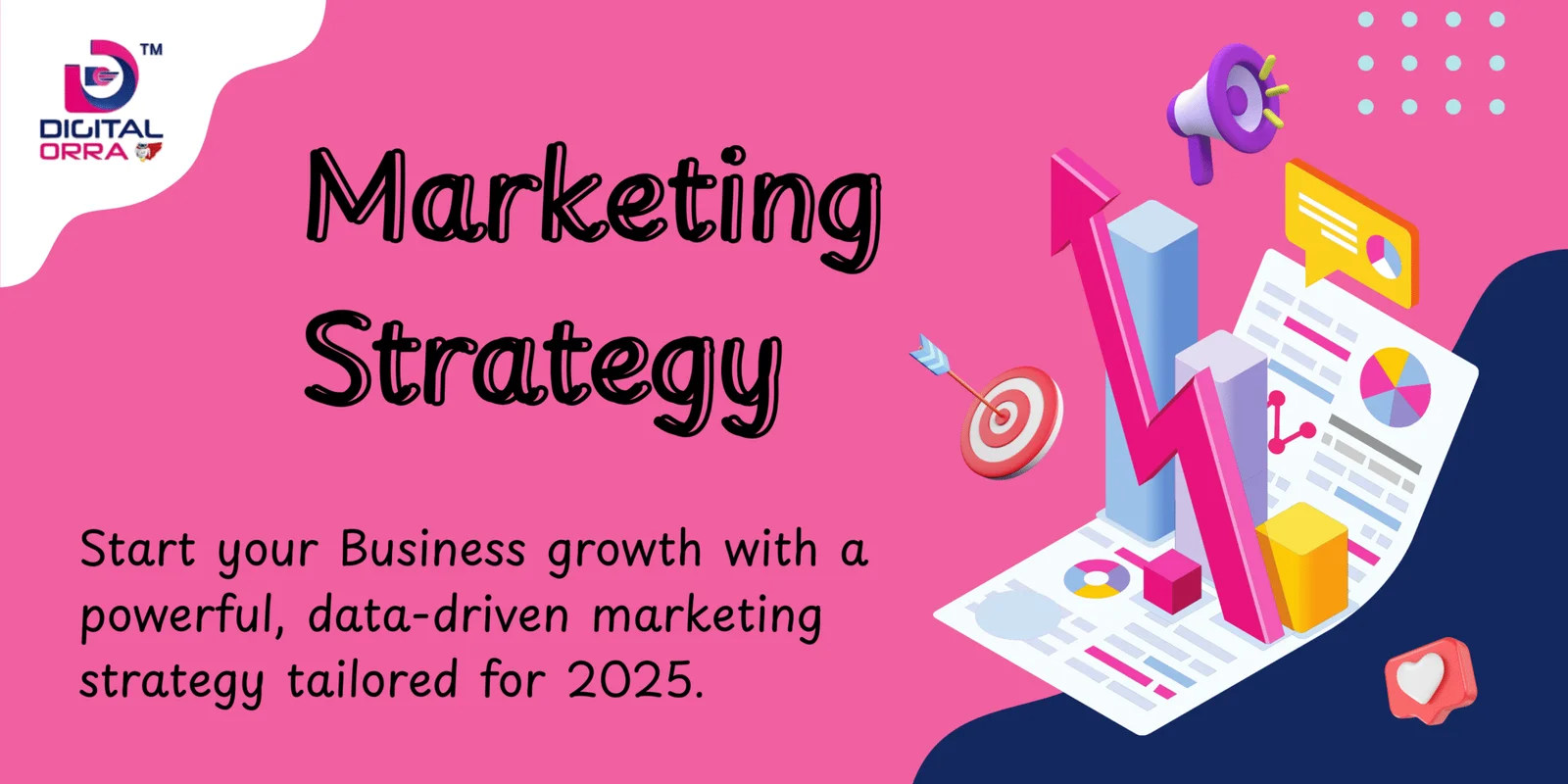A marketing strategy is your business’s game plan for attracting and retaining customers. Think of it as the roadmap that connects your brand to its ideal audience, ensuring every effort aligns with your business goals. In today’s competitive world, especially in 2025, a strong marketing strategy is no longer optional—it’s the lifeblood of your business growth.
What is a Marketing Strategy?
In simple terms, it’s the overall approach you take to promote your product or service. It combines research, planning, execution, and evaluation to ensure your brand message reaches the right people at the right time.
Why Marketing Strategy Matters in 2025
With technology evolving and customer expectations shifting, businesses need more than random marketing campaigns—they need a structured, data-driven approach. Without it, your efforts are like throwing darts in the dark.
Key Components of an Effective Marketing Strategy
Understanding Your Target Audience
Before you start selling, you need to know who you’re talking to. That’s where audience research comes in.
Creating Buyer Personas
A buyer persona is a fictional representation of your ideal customer. It includes demographics, interests, pain points, and buying behavior.
Segmenting Your Market
Not all customers are the same. By segmenting them into groups, you can tailor messages for maximum impact.
Defining Clear Business Goals
Every marketing move should support your overall business objectives—be it increasing sales, improving brand awareness, or entering a new market.
Crafting a Unique Value Proposition (UVP)
Your UVP answers the question, “Why should I choose you over your competitors?” It’s the heart of your marketing.
Types of Marketing Strategies
Digital Marketing Strategy
Digital is the dominant force in 2025, and you need to embrace it fully.
SEO (Search Engine Optimization)
SEO ensures your website ranks high on Google. Digital ORRA specializes in keyword research, on-page optimization, and link building to get you noticed.
Social Media Marketing
Platforms like Instagram, LinkedIn, and TikTok are essential for brand engagement.
Email Marketing Campaigns
Still one of the highest ROI strategies, email marketing builds direct relationships with customers.
Pay-Per-Click Advertising (PPC)
PPC drives instant traffic, ideal for quick results.
Content Marketing Strategy
Valuable, relevant content builds trust and authority in your niche.
Influencer Marketing
Partnering with influencers expands your reach to a targeted audience.
Event & Experiential Marketing
Hosting or participating in events creates memorable customer experiences.
Step-by-Step Process to Build Your Marketing Strategy
Step 1 – Conduct a SWOT Analysis
Identify your strengths, weaknesses, opportunities, and threats.
Step 2 – Set Measurable Objectives
Use the SMART method—Specific, Measurable, Achievable, Relevant, Time-bound.
Step 3 – Choose Your Marketing Channels
Select platforms based on where your audience spends time.
Step 4 – Create a Content Calendar
Plan blog posts, social media updates, and campaigns in advance.
Step 5 – Allocate Your Budget
Distribute funds across different marketing channels strategically.
Modern Marketing Trends in 2025
AI-Driven Marketing
AI tools like chatbots, predictive analytics, and automation are revolutionizing marketing.
Personalization at Scale
Customers expect tailored experiences, not generic messages.
Video-First Content Approach
Short videos dominate social media feeds and improve engagement.
Voice Search Optimization
With smart speakers rising, optimizing for voice queries is crucial.
Common Mistakes to Avoid in Marketing Strategy
Ignoring Data and Analytics
Without measuring performance, you can’t improve.
Copying Competitors Blindly
What works for them may not work for you.
Lack of Consistency
Inconsistent messaging confuses your audience.
Measuring the Success of Your Marketing Strategy
Key Performance Indicators (KPIs)
Track metrics like traffic, conversion rate, ROI, and customer lifetime value.
Analytics Tools to Track Progress
Google Analytics, SEMrush, and HubSpot are essential tools.
How Digital ORRA Helps Businesses with Marketing Strategy
Tailored Solutions for Every Business
Digital ORRA designs personalized strategies for startups, SMEs, and global brands.
SEO & Digital Marketing Expertise
Their team uses data-driven insights to rank you higher and get more customers.
Proven Case Studies
From local businesses to international clients, results speak for themselves.
Conclusion
A strong marketing strategy is your compass in the digital jungle. By understanding your audience, setting clear goals, and adapting to trends, you can outshine your competition. And with experts like Digital ORRA, you can skip the trial-and-error phase and move straight to measurable growth.
FAQs
Q1: What’s the difference between marketing strategy and marketing plan?
A strategy is the overall approach; a plan is the step-by-step execution.
Q2: How often should I update my marketing strategy?
At least once a year, or whenever major market changes occur.
Q3: Can small businesses compete with big brands using marketing strategies?
Yes, with targeted, cost-effective methods, small businesses can outperform bigger players.
Q4: What’s the most important part of a marketing strategy?
Understanding your target audience.
Q5: How can Digital ORRA help me improve my marketing?
They offer tailored, data-driven strategies for maximum ROI.



